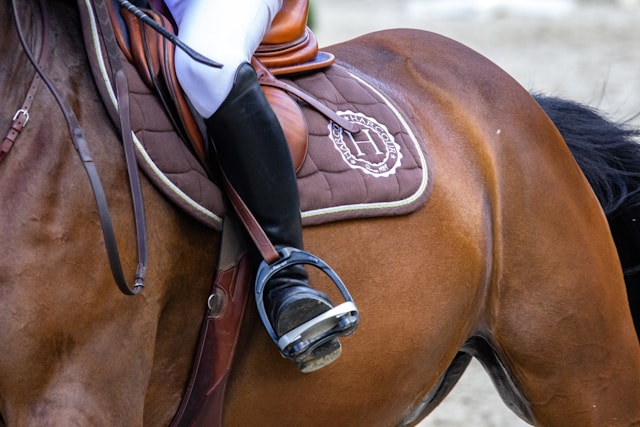Flatwork with Lesley Perry *OPEN TO ALL*
Saturday 07 February 2026

10 upcoming events
Next event:
05/02/2026 Flatwork with Tracy Garside: Inspiration for riding alone
Find out more ..

(Photo by Philippe Oursel on Unsplash)
Dressage events provide a special opportunity for punters to accurately predict the score. The subjectivity of the judging process in sports and the narrowness of the difference between winning and losing make predicting success in this particular sport especially challenging.
As opposed to horse racing, where the one who crosses the finish line is the one who wins, dressage involves the knowledge of various factors that determine how the judges will give the marks. All tests are examined by a panel that evaluates harmony, precision and technical performance, and this is a critical aspect that bettors should be aware of, which makes the difference between a winning performance and an average performance.
It is vital to know what affects a dressage score for an individual wishing to make successful bets. That’s why the best betting apps that offer various markets, more generous bonuses and competitive odds look for detailed statistics on horse and rider combinations, historical performance data across different venues and judges' scoring tendencies.
These aspects can enable punters to make better choices when supporting local competitors in big championships. Weather, track, and even time of the day can influence the performance of a horse, and thus having all the information available to the betters gives them a true advantage.
Speaking of weather, this factor can have a relatively significant influence on dressage results. Horses are prone to being disturbed by the wind or rain, which makes the ground slippery. Also, indoor arenas don’t just remove certain variables but create their own set of them, such as lighting and sounds. There are conditions that riders would like to ride in, too, depending on the temperament of the horse. A horse that’s been exposed to the heat for too long will not perform well in a difficult outdoor track when the sun’s out. Punters who recognise these patterns will be able to see value in the betting markets.
The horse and rider relationship is a major determinant in scoring high marks. A partnership, which has been in collaboration over a long period, tends to give a rider a degree of understanding of their horse's brain easily noticed by the judges. New combinations, even when performed by a talented pair, often need time before they work. That’s why it is important to consider the duration of time that a partnership has been competing with each other. Duos who have managed to compete on the international level over a few seasons are more likely to deliver a more consistent score than in their first year of co-operation.
The preferences of the judges can play a big role in determining the scoring. Although dressage judging is guided by strict principles, it can be interpreted differently. Some judges prefer strong, expressive movements, and there are those who appreciate accuracy and precision most. The evaluation of which judges are presiding over a given competition can be used to estimate the kind of performances that could be ranked highly.
The draw also has a more significant role than many punters have become aware of. Competing early in the contest is not always good because at the beginning of the contest, the judges tend to judge more conservatively. On the other hand, competing too late means that the competitor will be competing when the judges are more likely to be exhausted and are probably not engaged. The middle is usually the best place, especially in bigger competitions.
Hints of form are further suggested by training facilities and recent preparation. Competing horses are usually more concise than those that have not competed after a prolonged break. Excessive competition, though, will cause fatigue.